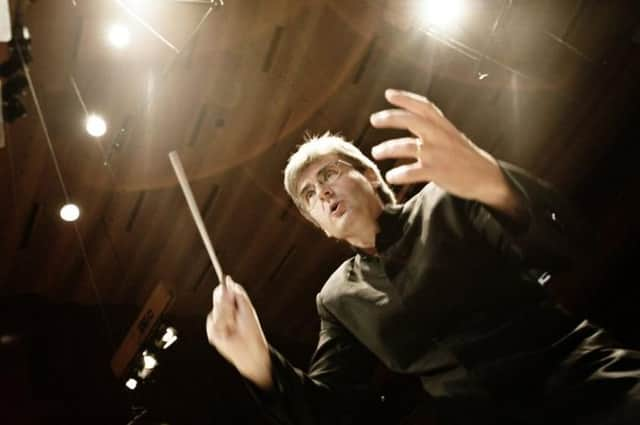Music review: BBC SSO / Dausgaard, City Halls, Glasgow


Thomas Dausgaard’s first utterance after two years of absence from the BBC SSO, where he is now outgoing chief conductor, was to issue a statement of support for peace in Ukraine and preface the official programme with the sultry, quietly optimistic Evening Serenade from Ukrainian composer Valentin Silvestrov’s Stille Musik.
The scripted programme flowed on naturally and unaffected, with the graduated mushrooming from solo violin to full orchestra that defines the first of Bartok’s Two Portraits. It’s a movement built on material from his first Violin Concerto, duly dominated by the searing quasi-solo role of SSO leader Laura Samuel, and engineered by Dausgaard as an organic, inexorable sweep. The contrasting second Portrait, as a sardonic response, stopped short of fielding its fullest, needle-sharp venom.
Advertisement
Hide AdAdvertisement
Hide AdHowever, it took us neatly into the near-demented puzzlement that is Carl Nielsen’s Sixth Symphony, which sets out its quizzical stall with a lone, ultimately pervasive, glockenspiel, before steering a manic course through the disconcerting questioning of the opening Tempo Giusto, the cartoonesque modernism of the mocking Humoreske, the troubled calm of the Proposta Seria, and the ultimate riot of the closing variations.
What is it saying? Dausgaard wisely left the question unanswered, which was probably Nielsen’s intention. The outcome was invigorating, a symphony driven by its own propulsion, dazzling virtuosity, sustained tension and perverse wit. Absolute rhythmic alignment teetered in the Humoreske, but the big picture was emotive and colourful.
Brahms’ First Piano Concerto, the sole feature of the second half, was an unexpected disappointment. It felt like an army with one general too many: Russian pianist Alexander Melnikov bullish and firm-toned, but sounding uneasy with the direction of play; Dausgaard overprescribing on the orchestral front, at times even drowning the pianist, and robbing the work of its natural temperament.
A message from the Editor:
Thank you for reading this article. We're more reliant on your support than ever as the shift in consumer habits brought about by coronavirus impacts our advertisers.
If you haven't already, please consider supporting our trusted, fact-checked journalism by taking out a digital subscription at https://www.scotsman.com/subscriptions